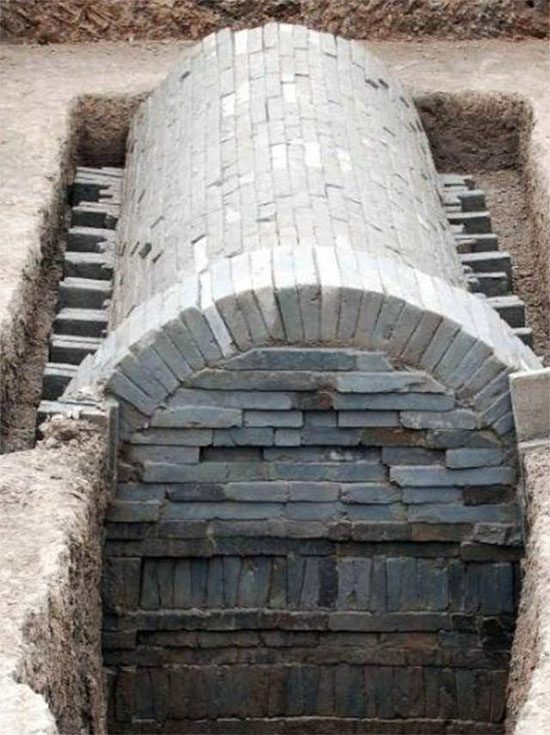Elixirs or longevity drugs frequently appear in classic Chinese literature, but did they truly exist in ancient Chinese society?
Throughout various ancient dynasties, many individuals pursued immortality. This pursuit is vividly reflected in the “Journey to the West,” where various demons relentlessly chase after Tang Seng, all hoping to consume a piece of him to gain immortality and eternal youth. Beyond novels, ancient emperors even dispatched people to search for elixirs of life.
However, the reality is that all kinds of longevity potions concocted during that time contained high levels of heavy metals. Once heavy metals enter the human body, they are difficult to eliminate. These heavy metals accumulate in the human body over many years, causing significant harm and potentially leading to death. Consequently, many emperors in history have died due to heavy metal poisoning.
Interestingly, the more emperors pursued immortality, the larger tombs they built for themselves, often burying items they used in life beneath the earth. Throughout such dynasties, no emperor has discovered the secret to eternal life, yet they remain convinced that such elixirs exist in the world.

The more emperors pursued immortality, the larger tombs they built. (Illustrative image).
The yearning for eternal life has always driven humanity, particularly the emperors in ancient Chinese history. They devoted significant effort and resources to search for or create what is termed “the elixir of life.” However, all of this remains legend without any scientific evidence to support the existence of such a potion.
With advancements in archaeological technology, various artifacts used by ancient peoples have been excavated from numerous underground tombs. A few years ago, archaeologists unearthed many cultural relics in an ancient tomb, among which was a shocking find: “the elixir of immortality.”
The scale of this ancient tomb is impressive, and the tomb’s owner, a woman in her forties who had never married, was of high status, making the unearthed items highly valuable. The inscriptions reveal that this woman dedicated her life to concocting the elixir of immortality.

The elixirs actually contained large amounts of heavy metals like cinnabar, lead, and mercury.
People in ancient times lacked sufficient biological and medical knowledge to explain aging and death. Therefore, they believed in mystical and miraculous concepts like elixirs of life. Death was seen as a mysterious and fearful phenomenon, prompting them to seek ways to evade it. Today, we have a more scientific perspective on immortality. We understand that human lifespan is limited by natural laws, and no miraculous potion can grant eternal life. However, medical science continues to evolve, aiming to enhance quality of life and extend human lifespan safely and effectively.
Experts have experimented with these longevity elixirs and discovered that they contained high levels of heavy metals such as cinnabar, lead, and mercury. Long-term use of these notorious heavy metals offers no benefits and can lead to significant harm, even life-threatening conditions.
Historically, one reason Emperor Yongzheng died suddenly was due to the excessive consumption of longevity drugs containing heavy metals, alongside the exhaustion from handling political affairs. Thus, immortality does not exist, at least not at this moment. Only by focusing on health care and regular exercise can we truly extend our lifespan.
Some common methods of creating longevity elixirs in ancient China include:
1. Use of Herbal Medicine
Many rare herbs were believed to possess the ability to grant immortality, such as:
Reishi Mushroom: This mushroom is dubbed the “herb of immortality” and has been used in traditional Chinese medicine for thousands of years. However, there is no scientific evidence supporting the claims of immortality associated with reishi.
Ginseng: This rare plant is thought to enhance health and prolong life. However, scientific research on the effects of ginseng is still limited.
Himalayan Goji Berries: These berries are used as an eye tonic and are believed to have longevity properties. However, there is no scientific proof to support this claim.
2. Use of Minerals
Some minerals were thought to confer immortality, such as:
Gold: This precious metal is considered a symbol of longevity and was used to create elixirs of life. However, gold has no biological effects, and consuming it can lead to poisoning.
Mercury: This toxic metal was used in many ancient longevity potions. However, mercury poses numerous health risks, including damage to the brain, kidneys, and lungs.
Cinnabar: This red mineral was used for dyeing and was also believed to have immortality properties. However, since cinnabar contains mercury, it is also toxic.
3. Alchemical Practices
Alchemical practices were a method aimed at creating elixirs of immortality and other miraculous drugs. Alchemists typically used materials like herbs, minerals, and even animal corpses to concoct potions. However, alchemy was based on incorrect scientific principles and could not produce elixirs of immortality.



















































